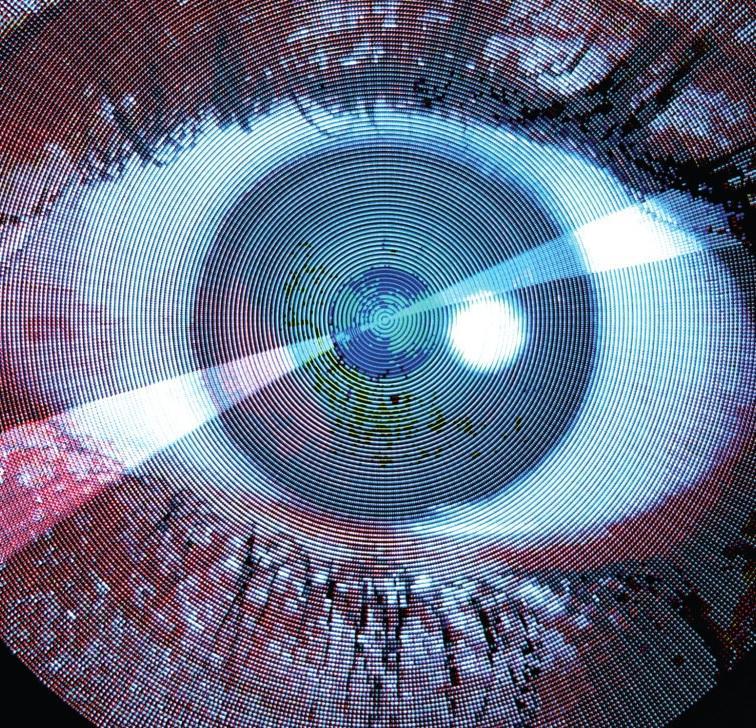Facing Windows questions voyeurism
Hatice Utkan Özden

What does it mean to spy on somebody, someplace, or some incident? How do we react when we know someone is spying on us? All these questions have different answers where some may say that they do not care while others may say that they are not comfortable. However, in any case, whether seeing or being seen, voyeurism arouses all kinds of different feelings.
Curated by Melike Bayık at Koli Art Space in Istanbul’s Kadıköy neighborhood, the exhibition raises a question around voyeurism and tries to rediscover the theme with artworks by Başak Bugay, Ahmet Rüstem Ekici, Tuba Geçgel, Can Küçük, Berkay Tuncay and Eşref Yıldırım. The exhibition titled “Facing Window” looks at the voyeurism theme from gender perception and observes spying, seeing, looking, exposure and interference with one’s body and space.
Different mediums in the exhibition such as video, installation, photography and knitting reveal the layered character of the exhibition.
“This kind of layered structure is also in parallel with the venue, Koli Art Space,” Bayık said, noting that the venue was at the middle of Kadıköy with lots of windows around it and people from the neighborhood looks through the window wondering what was going on inside. “Somehow, this situation turns into a reciprocal spying,” Bayık added.
The curator aims to have transparency on both sides, and this reflects on artworks. All artworks derive from exposing identities and spying. Ekici’s video installation artwork titled “Through the hole” is an animation made with hologram technique. The rhythm in the video allows a viewer to see a room from different aspects. Sometimes the room’s view is full while sometimes it is not, and this seeing and not seeing continues without stopping forever. In some ways, it makes us question our own privacy and if we really feel privacy in a room that only belongs to us.
The name of the exhibition comes from English philosopher and thinker Jeremy Bentham’s theme, panopticon, which derived from a Greek word called “panoptes,” meaning “all-seeing.”
Bentham’s panopticon is an institutional building that allows security persons to keep a watch on prisoners at all times.
However, inmates do not have any idea if they are being watched or not. The situation of the panopticon is also equal with today’s world. No one can tell if they are being traced or not.
Geçgel’s work displayed on the window (and the first seen by the viewer) reveal questions, such as “are we sure we are not being spied by others or are we spying on others?”
Tuncay’s photography installation lets out a more hidden world on the web. The small photos of women exposing themselves are on the wall, and not seeing their faces, but only bodies open an area to ask a new question: “Am I the voyeur here, or am I seeing somebody’s private life?”
The exhibition continues with Küçük’s installation that interacts with viewers. Viewers can exchange clothes with Küçük’s own clothes hanging on the hanger. Küçük emphasizes how clothes or fashion help people to be understood and help them to express themselves.
Bugay’s tiny kitchen made from cement attracts viewers’ attention with its position. One has to look from above in order to see inside and it makes us wonder what can be in there?
Yıldırım’s knitted poetry work and video (in which he is wandering freely in nature and acting like he is in a ritual) make us realize the reality of identity and perception. Apart from the video work, Yıldırım knitted a beautiful poem by Arkadaş Z. Özger. Özger’s aim is to emphasize and express his love and queer identity with a poem. Özger’s love poem’s words are special and beautiful that goes along as: ‘‘Carrying a deathsman into my room, each morning, deathsman of my love and my abandonment, he never judges my sadness and my ugliness, but threatens me with death that is very well known to me, loneliness kills me each morning/ While I unravel night’s thread, fold my sadness and loneliness to the mornings…’’
The words knitted in rainbow colors and hung on the walls unfold the hardships of revealing identity.
The exhibition will continue to be on display till July 5.
















